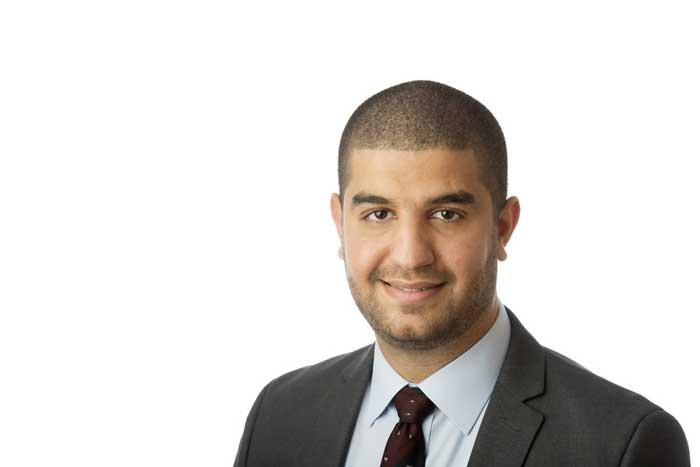UA Little Rock doctoral student presents research on social cyber forensics
A University of Arkansas at Little Rock student has presented his research on how social cyber forensics can be used to track how online deviant groups use social media to spread propaganda and misinformation at several major international conferences this summer.
Samer Al-Khateeb, computer and information sciences doctoral student, has been working as a research and teaching assistant with Dr. Nitin Agarwal, the UA Little Rock Jerry L. Maulden-Entergy endowed chair and a professor of information science, since 2013 as part of Agarwal’s research group, UA Little Rock Collaboratorium of Social Media and Online Behavioral Studies (COSMOS).
“Samer started working with me in 2013 on U.S. Department of Defense funded projects to investigate how violent, extremist groups, terrorist organizations, state and non-state actors use social media technologies to manipulate public discourse, weaponize narratives, disseminate propaganda, and recruit and radicalize,” Agarwal said. “His work on these projects is extremely critical and timely. His research cuts across the disciplinary silos and pushes the fringes of our understanding of emergent behaviors, decentralized and unorganized organizations.”
On Sept. 1, Al-Khateeb presented a paper, “When Citizen Journalism Goes Rogue,” about bad citizen journalism cases at the Centre for Media and Celebrity Studies 5th International Conference in New York City.
“This presentation is about the rise of citizen journalism in the social media era,” Al-Khateeb said. “There are many cases where people report events before the traditional media. In many cases, this is a good thing. However, people can also report fake news and spread misinformation. If that news is fake, it can be bad for society. We presented case studies were citizen journalism went rogue.”
In July, Al-Khateeb presented his research entitled, “A Social-Cyber Forensics Approach to Understand Twitter & Blogs’ Influence on Anti-NATO Propaganda Campaigns,” during the Social Computing, Behavioral-Cultural Modeling and Prediction Conference held July 5-8 in Washington, D.C.
The presentation explored how an online deviant group used different social media channels and techniques to spread propaganda and misinformation against the Trident Juncture Exercise conducted by NATO forces in Europe in 2015. Al-Khateeb used social network measures and social cyber forensics to identify influential information actors and uncover hidden relations between anti-NATO operatives.
“These groups use Twitter to build an audience (followers), then they steer their followers to blogs where they frame their narratives,” Al-Khateeb said. “In this work, we tried to find the relationships between the online deviant groups on Twitter and their blogs and websites. We did this by running social network analysis and social cyber forensics techniques, which also helped us finding other people who are working with these groups to disseminate propaganda.”
The information can help authorities and decision makers see how online groups are coordinating the spread of information and come up with countermeasures and counter narratives to combat these groups.
Al-Khateeb and fellow doctoral student Muhammad Nihal Hussain also led a three-hour tutorial for conference presenters on social cyber forensics.
At another conference in Washington, D.C., Al-Khateeb presented his paper, “Leveraging Social Network Analysis & Social Cyber Forensics Approaches to Study Cyber Propaganda Campaigns” at the first North American Social Networks Conference of the International Network For Social Network Analysis held July 26-30. Agarwal and Hussain co-authored the paper.
Al-Khateeb, who also holds a bachelor’s degree in computer science and a master’s degree in applied science from UA Little Rock, is expected to graduate with his Ph.D. at the end of the semester and has plans to work at a university as a professor and researcher.
He has signed a contract with Springer to write a book on social cyber forensics. His research areas include social network analysis, deviant behavioral modeling, deviant cyber flash mobs, cyber propaganda campaigns, social cyber forensics, social computing, data mining in social media, and the detection of bots.
He most recently won awards at the 2017 UA Little Rock Engineering and Information Technology Open House, including the Excellence in Research Award, second place in the Most Innovative Award, and second place in the Societal Impact Award.
